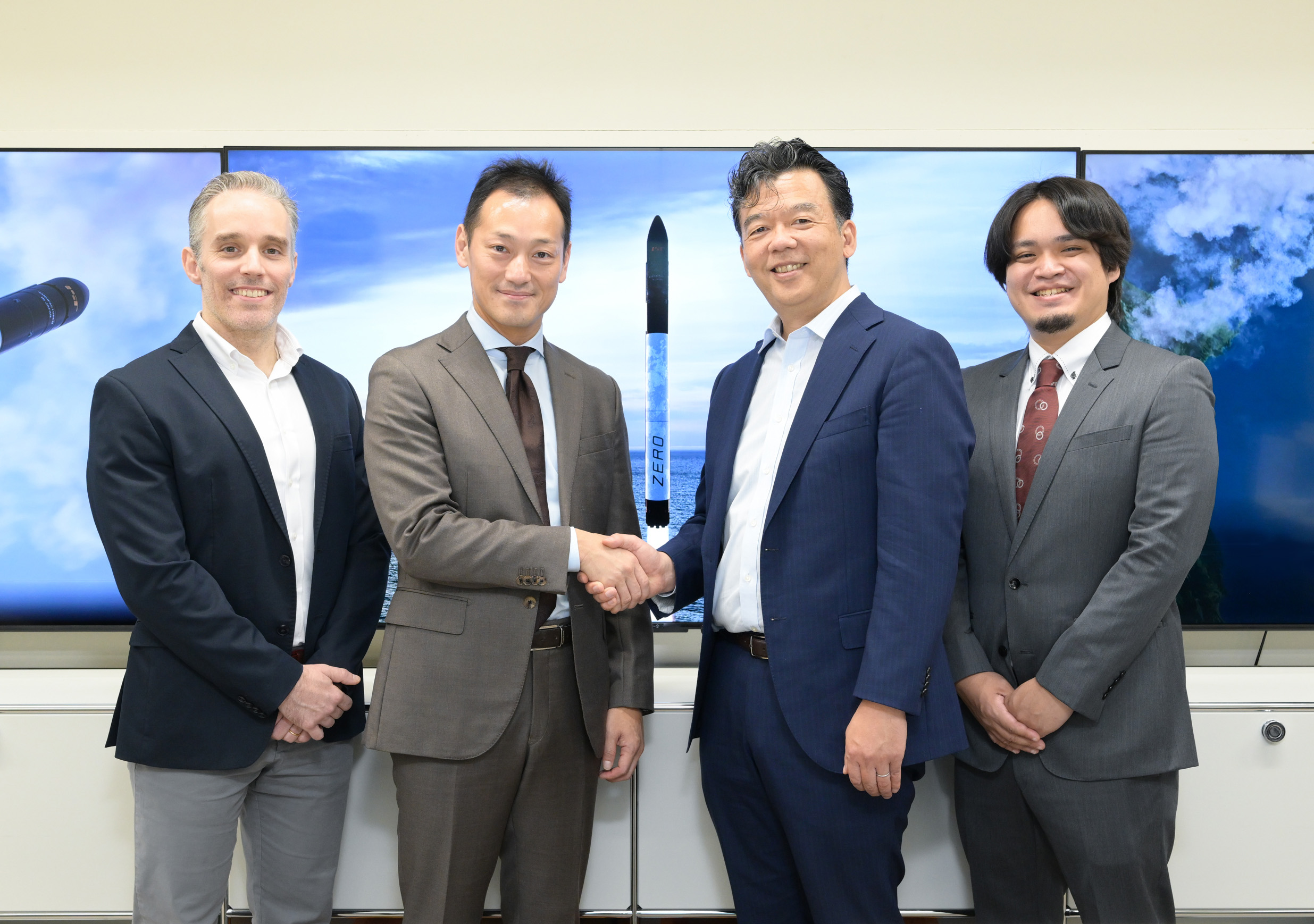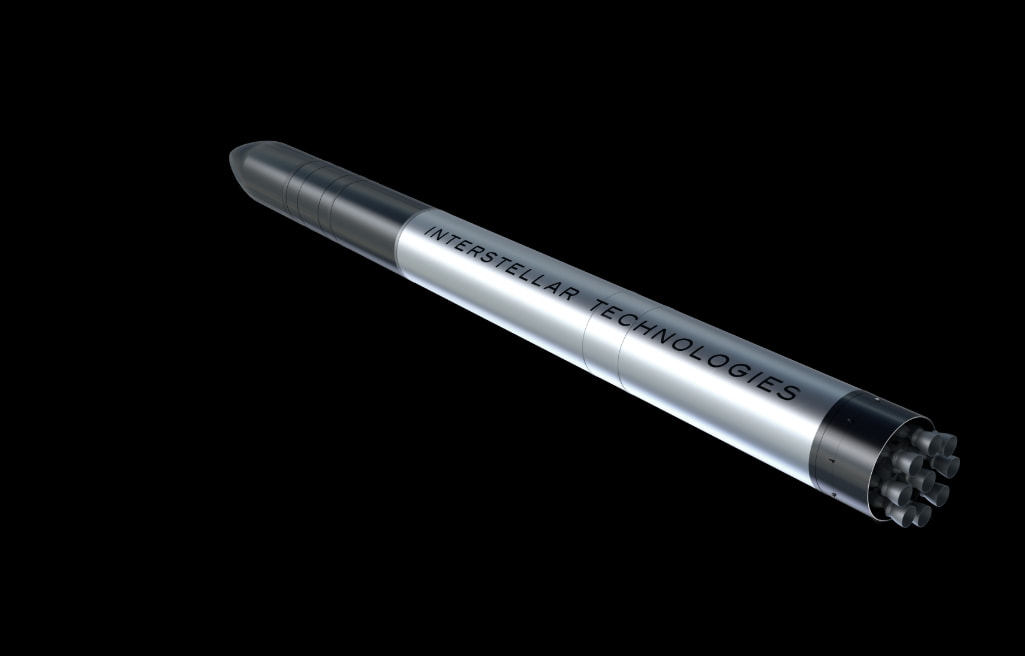DATE
Interstellar Technologies secures 3 new Customer Payloads to Orbital Launch Vehicle ZERO’s First Flight
CATEGORY
TAG

- Interstellar Technologies has secured 3 new customers (The University of Tokyo, Fulton Science Academy, and Lothan Space) for the first flight of its orbital launch vehicle, ZERO
- With these additions, ZERO’s First Flight will now carry 7 payloads representing student-built CubeSats, pioneering startups, and visionary institutions from around the world
Tokyo (Japan), November 18, 2025 – Interstellar Technologies(“Interstellar”), a leading space infrastructure company, is proud to announce 3 new customers secured for the inaugural flight of its orbital launch vehicle ZERO, bringing the total number of customers to 8 (7 payloads and 1 separation system company).
The newly added organizations of The University of Tokyo, Fulton Science Academy, and Lothan Space will each send educational CubeSats developed by university and student teams. All three have signed individual Launch Service Agreements with Interstellar. This milestone underscores Interstellar’s expanding global partnerships and its commitment to making space access more inclusive.
Interstellar, a pioneer in private space transportation in Japan, was the first domestic private company to reach space with its suborbital vehicle, MOMO. The company is currently developing ZERO, an orbital vehicle designed to launch small satellites in response to the global shortage of launch capacity and in alignment with the Japanese government’s goal to enhance domestic launch capabilities.
These new customers join the 5 previously announced external payloads from August 2025*1, all aiming to demonstrate new technologies and provide hands-on STEAM education through real-world space missions.
*1 https://www.istellartech.com/en_news/10222
ZERO’s First Flight Customers:
Ocullospace (ASEAN Region)
Wolfpack CubeSat Development Team (USA)
DALRO Aerospace (South Korea) *Separation Systems
Small Spacecraft Systems Research Center at The Osaka Metropolitan University (Japan)
Tokyo City University (Japan)
Center for Space Resources and Innovation at The Tokyo University (Japan) *New
Fulton Science Academy (USA) *New
Lothan Space (USA) *New
Their decision to join this flight reflects a deep spirit of innovation. This mission represents a unique alliance of student-built CubeSats, pioneering startups, and visionary institutions, all united by a common goal: to reach space.
About the new customers onboard ZERO’s first flight
The Tokyo University’s Center for Space Resources and Innovation (Japan)
The Center for Space Resources and Innovation (CSRI) at the University of Tokyo promotes research and development toward the sustainable utilization of space resources as part of its activities under the JAXA’s Space Strategy Fund SX Research and Development Site program. As part of this effort, CSRI will conduct an initial in-orbit demonstration of space resource utilization technologies using Interstellar Technologies launch vehicle. Through this mission, CSRI aims to accumulate foundational technologies and knowledge leading to future full-scale lunar and asteroid resource utilization missions.
Payload Size: 3U (30cm x 10cm x 10cm) CubeSat, 5 kg mass
Mission: Demonstrate and evaluate space resource utilization technologies exploring the feasibility of material use and energy circulation
Location: The University of Tokyo, 7-3-1 Hongo, Bunkyo-ku, Tokyo, Japan
Representative: Hideaki Miyamoto, Director and Professor of the Center for Space Resources and Innovation, (The University of Tokyo)
https://csri.u-tokyo.ac.jp/
Fulton Science Academy (USA)
Fulton Science Academy is a leading STEM-focused private school committed to student innovation, interdisciplinary research, and hands-on aerospace projects. Their student-led satellite initiative unites primary and secondary school learners and mentors to design, build, and operate CubeSats, providing real-world experience in space science and engineering. KorucuSAT-2 is a next-generation 1U CubeSat mission that builds on prior success and broadens both educational and technical horizons. The satellite will test advanced battery technologies under real space conditions while offering global access to live telemetry and data. Through KorucuSAT-2, we aim to inspire future aerospace innovators, advance small-satellite capabilities, and strengthen international collaboration in space exploration.
Payload Size: 1U (10cm x 10cm x 10cm) CubeSat, 1 kg mass
Mission: Test silicon anode batteries in low Earth orbit
Location: 3035 Fanfare Way, Alpharetta, GA 30009, USA
Representative: Dr. Ramin A. Adams
http://www.fultonscienceacademy.org/
Lothan Space (USA)
Lothan Space is developing a constellation of AI powered satellites designed for autonomous, real-time data processing in orbit. Their long-term goal is to integrate advanced AI into all space applications, from LEO to deep space exploration. For this project, Lothan Space is donating a launch opportunity to the Fremont Student Makers. This initiative will support the launch of their first 1U CubeSat and champion our commitment to promoting STEM education in high school.
Payload Size: 1U (10cm x 10cm x 10cm) CubeSat, 1 kg mass
Mission: Provide Fremont Student Makers’ students with hands-on, end-to-end experience in satellite development and operations
Location: 3579 E Foothill Blvd Suite 243, Pasadena, CA 91107, USA
Representative: Founder, Sam Yu
https://lothanspace.com/

